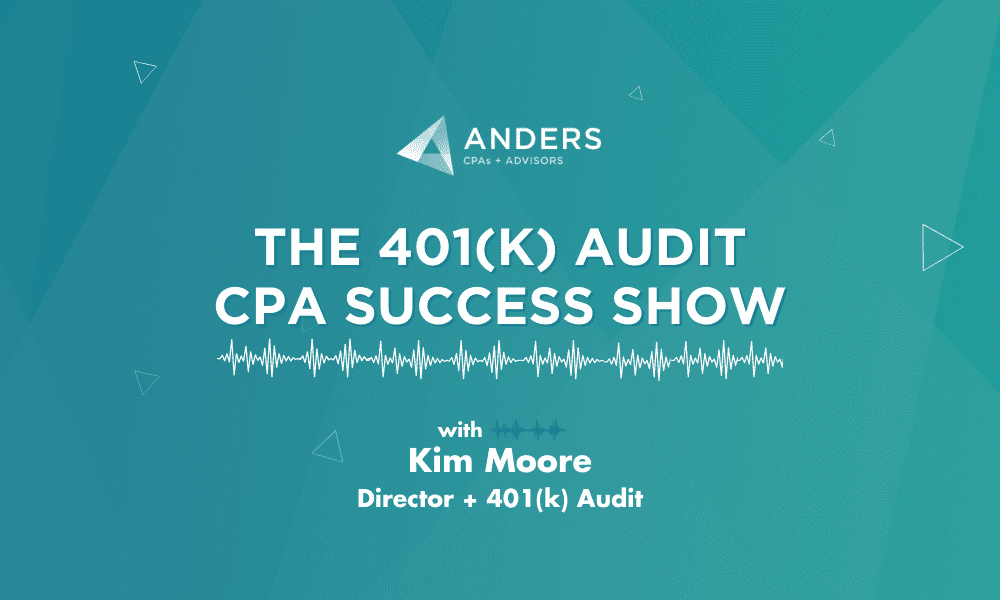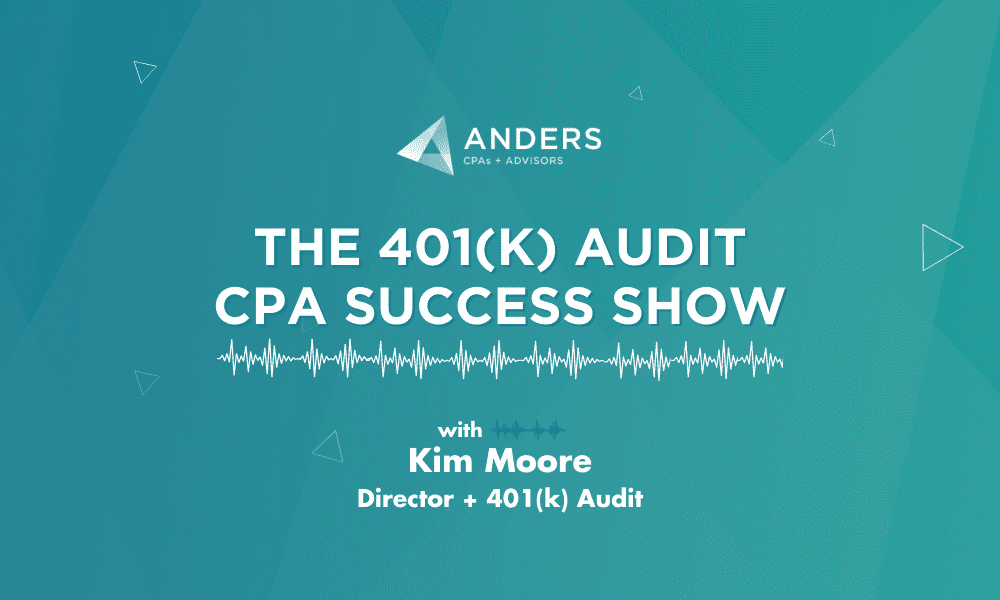If you are the plan sponsor of a 401(k) plan and you just found out that you need to have an audit completed for your plan, you may be wondering what you’ll need to do as part of this audit. The main responsibilities of the plan sponsor is to answer all the required questions of the auditor and provide the requested documentation.
WHAT THE 401(k) PLAN AUDITOR NEEDS
The auditor will need some of your time to complete required inquiries and also to gain information to assist them in completing the testing work needed for the audit. They will also need to understand the procedures utilized:
- For processing contributions into the plan.
- For withdrawals from the plan for distributions.
- For loans and fee payments and also the reporting.
- The process for compliance and valuation activities related to the plan.
- How you and other plan management monitor the activity that occurs in the plan.
- How you verify the accuracy and timelines of the transactions.
- How you ensure participants are informed of their account balances.
- How you ensure all required compliance actions are completed.
- How often you review the investment lineup for the plan.
Make sure all the individuals involved with the plan are available to answer these necessary interviews. There are also required inquiries that must be made.
These questions relate to fraud, potential fraud, events that occurred after the plan year end date, participant complaints and any unusual transactions that may have occurred, as examples. These inquiries are a very important part of the audit and are required per audit standards to be completed. Make sure you make time to complete all the required inquiries.
The other major activity that management must conduct as part of the audit is to provide the required information needed. Examples of the types of information that will be needed are:
- Plan Documents – these include the official plan documents such as the Adoption Agreement, Basic Plan Document, IRS Opinion/Determination Letter, Summary Plan Description and other documents as applicable. Also, the auditor will need to see any supporting documents such as Service Agreements, Loan Policies and other supporting documents. You should consider gathering these documents together before the start of the audit to ensure there are no delays. If you do not have current copies of these documents, you should work with your service providers to obtain them.
- Current Year Plan Financial Information – this includes the trust report, certification statement (if applicable), participant statements or participant reports and other supporting information such as distribution schedules, loan schedules, contribution schedules and other schedules related to the plan year activity. This grouping of information may be referred to as the “Audit Package”.
- Compliance Documentation – this includes the Plan Census, discrimination testing information, 1099-R reporting, copies of required disclosures such as the Fee Disclosure and a copy of the draft Form 5500.
Once this information is obtained, the auditor will review it and select samples for testing. Then the auditor will be requesting additional information for testing related to those samples. This documentation may include items such as:
- Bank statements
- Human Resource information such as I-9 forms and information in employee files
- Payroll information including year-end payroll information, W-2 copies and information on specific pay dates
- Distribution and loan check copies, 1099-R forms, amortization schedules and other supporting information for these disbursements
- They may need to confirm specific information with plan participants to verify the accuracy of specific transactions or account balances
As the testing continues, the auditor will need to request additional information to resolve testing questions or variances. Timely responses to all the auditor requests will ensure your Plan audit moves along quickly so you can meet all filing deadlines.
WHAT DOES A 401(K) AUDITOR PROVIDE?
Your auditor will provide an audit opinion letter, set of financial statements, disclosures and supplemental schedules. They will need for you to review these items, ask questions as needed and ultimately to approve the statements, schedules and disclosures. They will also need you to complete something called a management representation letter.
This letter allows them to rely upon the information provided by the company personnel during the audit. This is a required part of the audit per audit standards.
Audits can be frustrating as they require a lot of documents and also time to respond to questions and to help review variances as they come up. However, a timely response to all the auditor requests will help your audit stay on track and allow for a timely completion. Any efforts you can make ahead of the audit to gather the above items will ensure the audit moves forward and does not experience any delays.
As the plan sponsor, when it’s time to audit your 401(k) plan, it’s vital that you hire an experienced auditor to ensure your plan is in compliance. At Anders we specialize in retirement plan audits. We have the ability to offer assistance entirely off-site with little or no distraction to your daily office routine. We also offer flat-fee pricing so there are no surprises on your bill when the job is complete.
To get started, request a free 401(k) audit consultation below or contact the team at (314)-886-7913 to schedule an appointment.


